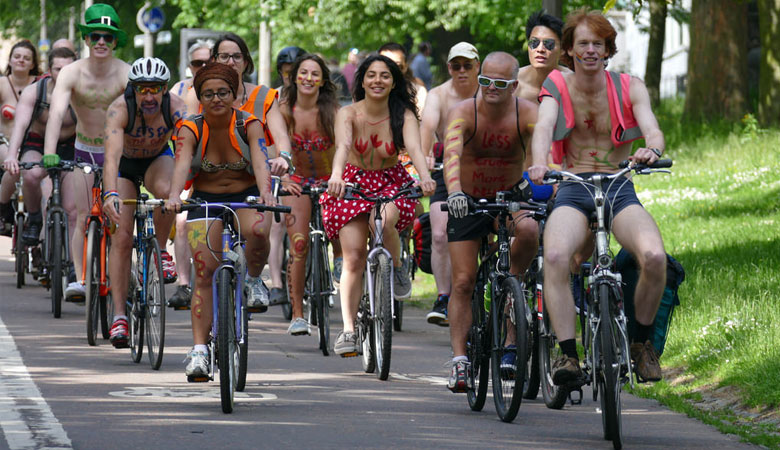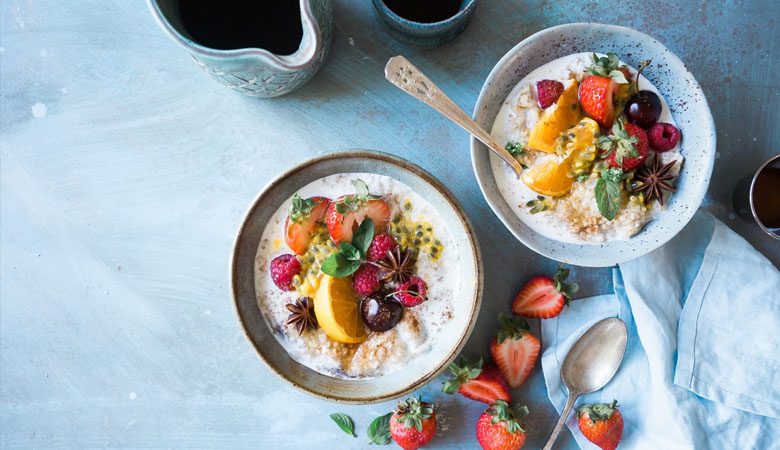
A good diet is essential to maintaining good fitness, especially as our activity-levels increase. Regardless of the activity we do, we need to make sure our bodies are properly fuelled with the right mix of nutrients, at the right time, to keep our energy-levels steady and avoid unwanted crashes.
In our guide below we cover off some key foods for fitness, and how you can eat them at the right times to get the most from your exercise.
- Bananas

Your body needs fuel to help it through physical activity. Carbohydrate is your body’s main source of energy and it’s generally recommended to eat a snack that combines carbohydrates and protein a couple of hours before exercising. Bananas are high in carbohydrates and perfect for pre-activity fuelling: combine them with some peanut butter on a cracker to get some protein in too. - Salmon

As you exercise, your muscles will use up energy stores and some of their proteins will get broken down and damaged. After exercising, it’s important that you replenish the nutrients you’ve lost to help your muscles recover and grow. Aim to eat a ratio of 3:1 carbs and protein after you exercise, and ideally within 45 minutes of finishing. Salmon is great for this, containing lots of protein, Omega 3 and vitamin D: known to support muscle and bone health, and also improve mood. - Milk

Choosing easily digested foods will help you to more readily absorb nutrients. Naturally nutritionally balanced, easily digested and hydrating, milk also contains the essential proteins and sugars needed to properly refuel after exercise. And there are other benefits too: it’s high in calcium, essential for bone health, and it may also help you to sleep better if you drink it at night time – also aiding recovery. - Broccoli

It’s easy to get caught up in macronutrients such as carbs and protein, but don’t neglect micronutrients such as vitamins and minerals too. These are essential for making sure your body functions properly: from making sure your bones are strong to ensuring your heart can keep up. Leafy greens, such as broccoli or even kale and spinach, are nutrient powerhouses, containing a whopping amount of calcium, magnesium, folate and fibre – so load them up! - Tomatoes

If you’re counting calories, then it’s important to try not to overcompensate for the extra exercise you’re doing. Pay attention to portion sizes and snacks, especially as you may find yourself slightly hungrier than normal. Of course, this doesn’t mean starving yourself – make sure you eat good, nutritionally-balanced meals: tomatoes are packed full of vitamin C and have been linked to the production of leptin in the body, which helps to regulate appetite. - Nuts

A good way to beat the mid-afternoon slump, nuts are chock-full of healthy fats, vitamins, minerals, and fibre. Brazil nuts, in particular, are a good source of selenium, which can help to maintain your immune system. Although nuts are filling, many people wrongly assume they are a key source of protein: do remember that all nuts are in fact much higher in fats. Try to stick to a small handful to avoid over-indulging. - Water

Yes, we know it sounds boring, but staying well hydrated is so important when you exercise. It aids recovery, keeps your body metabolizing as it should, and aids fat burn. It may be tempting to load up on sugar-laden sports drinks, but in most cases, good old-fashioned water is the best way to stay hydrated. You should aim to drink at least a couple of glasses of water before and after you exercise, and sip regularly during your workouts. - Oats

Oats are one of the foods that nutritionists swear by. They’re cheap, plentiful, and good for maintaining energy levels, as they contain both carbohydrate and fibre that slows digestion to avoid blood-sugar spikes. Oats are also known to have anti-inflammatory properties which can aid overall health. They’re easy to work into a healthy diet – try eating them for breakfast daily. - Oysters

Oysters, alongside other seafood and bivalves, are a good source of iron. Being low on iron can be a huge inhibitor for exercise: it can make you feel tired or fatigued even before you start, and during a workout, it can inhibit your muscle function and cause you to tire quicker. The type of iron found in shellfish is also more readily absorbed than that found in most vegetables – so eat up! - Coffee

Yes, really! It should come as no surprise: sports drinks mostly rely on sugar and caffeine to keep you fuelled. Drinking coffee an hour before a workout has been shown to help people keep going longer. It’s also been shown to ease muscle pain after you’ve finished, and it isn’t as dehydrating as you might think. Try it next time you want to push for your next challenge. - Ginger

Ginger root has been used for hundreds of years throughout the world as a way to ease inflammation. It’s a potent anti-inflammatory that’s been shown to ease muscle pain and reduce joint swelling and stiffness. Work fresh ginger into your meals as a way to aid recovery: you can try it in smoothies, stir-fries and teas.
Ready to supercharge your fitness routine? Find more inspiration in our other blogs, or check out our event pages to find your next challenge.



